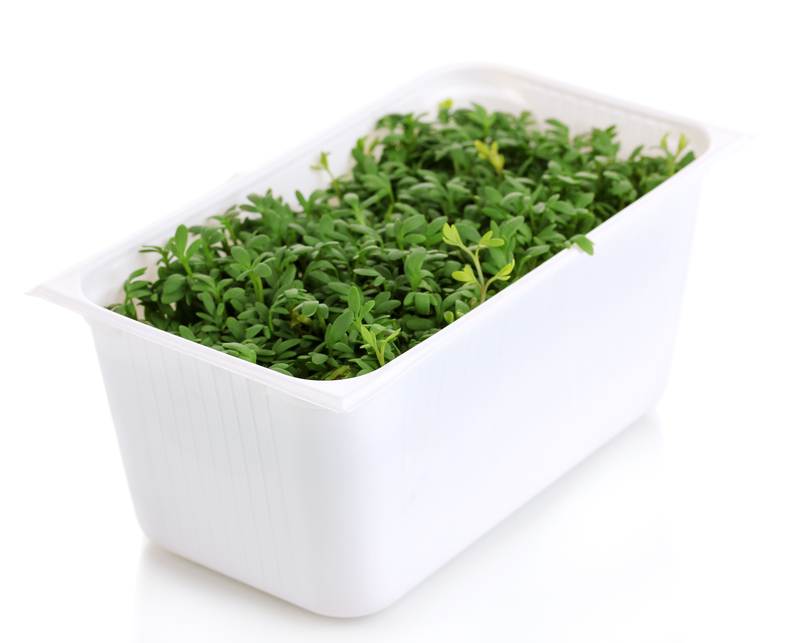Transformation in Trash Treatment Techniques: An In-Depth Look
The world is experiencing an unprecedented surge in waste production, making transformation in trash treatment techniques a critical necessity. As urban populations swell and consumption patterns evolve, traditional waste management methods are struggling to keep pace. In this comprehensive guide, we explore cutting-edge advances, eco-friendly strategies, and future perspectives in trash treatment, illuminating how innovation is reshaping the waste management landscape for a cleaner, greener future.

The Evolution of Trash Treatments
Managing human-generated garbage has historically been a challenge. The journey from dumping and open burning to sophisticated, sustainable solutions marks a significant transformation in waste processing methods. Let's trace the history and examine why a shift was necessary:
- Early Methods: Dumping, burying, and open air burning dominated primitive waste management.
- Incineration (19th-20th Century): The process reduced volume but produced toxic emissions.
- Landfilling: Once modern, but led to leachate issues, soil contamination, and space shortages.
- Separate Collection & Recycling (Late 20th Century): Emergence in response to resource sustainability concerns.
As volumes skyrocketed and environmental awareness grew, it became clear that old methods were no longer sustainable. This spurred the incredible transformation in trash treatment technology and philosophy that we see today.
Key Drivers Leading to Transformation
- Environmental Regulations: Stricter standards for land, air, and water compelled innovation.
- Resource Conservation: Increasing scarcity of materials highlighted the value of recycling and recovery.
- Public Health: Awareness of disease and pollution risks drove communities to seek safer alternatives.
- Technological Advancement: New tools and methods enabled smarter, more efficient approaches to trash treatment.
Modern Trash Treatment Techniques
Today's waste management is multifaceted, focusing on sustainability, resource recovery, and minimal environmental impact. The transformation in trash treatment systems covers a spectrum of advanced processes:
1. Mechanical-Biological Treatment (MBT)
MBT combines physical sorting with biological processes to separate recyclable materials from organic waste. The organic fraction is stabilized through composting or anaerobic digestion, resulting in biogas and safer, reduced waste for landfilling.
- Advantages: Reduces landfill volume, recovers recyclables, generates renewable energy.
- Challenges: Complex operation and high initial cost.
2. Advanced Recycling and Circular Economy
Moving beyond simple recycling, modern systems employ sophisticated sorting technologies--like optical scanners, AI-driven robots, and pneumatic sorters--to ensure higher-quality recovered materials.
- Plastic-to-fuel and chemical recycling processes break down plastics into their molecular components, enabling true cradle-to-cradle reuse.
- Design for Disassembly encourages manufacturers to create products that are easier to recycle.
3. Waste-to-Energy (WtE) Technologies
Turning garbage into electricity or heat is a huge leap in transformation in garbage treatment technology. Modern WtE facilities use:
- High-efficiency incinerators with pollution scrubbers that minimize emissions.
- Gasification and pyrolysis--thermal processes that convert waste to synthetic gas, bio-oil, or char, with minimal environmental footprint.
- Anaerobic Digestion to turn organic waste into methane-rich biogas and nutrient-dense digestate.
4. Composting and Organic Waste Valorization
Composting is no longer just backyard science; industrial-scale systems create high-quality compost and soil enhancers. Innovative approaches include:
- Vermicomposting: Using worms for rapid, odorless waste conversion.
- In-vessel composting: Accelerated aerobic decomposition in controlled environments.
- Black soldier fly larvae farms: Bioconversion of food waste into protein and organic fertilizer.
5. Digitalization and Smart Waste Management
The inclusion of digital technologies--IoT sensors, data analytics, and AI--marks another important transformation in trash processing systems:
- Smart bins optimize collection routes, reducing emissions and costs.
- Data-driven planning identifies waste trends and improves facility performance.
- Digital tracking ensures transparency and circularity in the waste value chain.
Environmental and Societal Benefits
Key Achievements from Transformative Trash Treatment
- Landfill Reduction: Advanced systems divert a greater share of waste from landfills, preserving land and mitigating pollution.
- Resource Recovery: High-value materials--plastics, metals, paper--are returned to productive use, conserving resources.
- Energy Generation: Waste becomes a renewable source of power or heat, supporting energy diversification.
- GHG Mitigation: Capture of methane and modern containment methods vastly cut greenhouse gas emissions.
- Job Creation: New industries in recycling, renewable energy, and circular economies provide green employment opportunities.
- Public Health Improvements: Enhanced processing reduces exposure to disease vectors and toxins.
Challenges in the Transformation of Trash Treatment Techniques
Despite remarkable progress, barriers remain in implementing innovative waste management technologies worldwide:
- Infrastructure Investment: Advanced systems are capital-intensive and require significant upfront costs.
- Technological Complexity: Maintaining and operating modern facilities demands specialized expertise.
- Public Participation: Successful recycling and composting depend on effective community engagement and behavior change.
- Regulatory and Policy Alignment: Inconsistent rules, standards, and incentives can impede adoption.
- Market Fluctuations: Pricing volatility for recovered materials affects the economics of recycling and recovery.
Innovative Technologies Shaping the Future of Trash Treatment
Several groundbreaking trash transformation technologies hold promise for further evolution:
Artificial Intelligence in Sorting and Processing
- Machine learning systems recognize, sort, and process waste streams with increasing speed and precision, minimizing contamination and improving yield.
Biotechnological Advancements
- Genetically engineered microbes and enzymes are being used to break down plastics and hazardous waste previously considered non-recyclable.
Plasma Gasification
- Ultra-high temperatures vaporize any type of waste, producing syngas (for fuel) and a glassy slag by-product, with minimal residuals.
Blockchain for E-Waste and Circular Economy
- Blockchain technology ensures traceability, transparency, and legal compliance in the management of electronic waste and valuable materials.
Robotics in Waste Collection
- From autonomous garbage trucks to drone-assisted litter removal, robotics is revolutionizing collection efficiency and safety.
Case Studies: Global Leaders in Trash Treatment Transformation
- Sweden: Nearly 50% of municipal waste is converted to energy, with chemical recycling and biogas production in widespread use.
- Japan: Waste separation at source is mandatory; advanced high-temperature incineration and active upcycling initiatives define their systematic approach.
- Germany: Pioneers in the circular economy, with rigorous recycling rates and extended producer responsibility laws driving innovation.
- Singapore: Uses smart technology for waste monitoring, world-leading incineration facilities, and innovative landfill reclamation projects.
Steps Forward: Strategies for Accelerated Transformation
1. Policy Support and Regulation
- Incentivizing innovation: Governments should offer subsidies or tax breaks for companies and municipalities implementing advanced trash treatment technologies.
- Strengthen Extended Producer Responsibility (EPR): Mandate manufacturers to take back and recycle their products.
2. Community Engagement and Education
- Promote behavior change through awareness campaigns, making it easier and more rewarding for individuals to participate in waste sorting and composting programs.
3. Investment in Infrastructure and R&D
- Public-Private Partnerships: Combining resources to finance and deploy new garbage transformation systems.
- Support R&D: Boost discovery of next-generation processing, recycling, and valorization techniques.

The Circular Economy: The Ultimate Transformation in Trash Treatment Techniques
The pinnacle of the transformation in trash treatment techniques is the establishment of a circular economy--where waste ceases to exist. Every product is designed for reuse, disassembly, and regeneration. This paradigm shift offers numerous benefits:
- Drastic reduction in resource extraction and environmental degradation.
- New economic opportunities emerge in repair, remanufacturing, and recycling sectors.
- Greater resilience against market disruptions and supply chain shortages.
Realizing the Circular Vision
It will require:
- Collaboration between governments, businesses, and civil society
- Innovative product and system design for longevity and recyclability
- Consistent, supportive policies and regulations
- Ongoing public education and participatory culture in waste management
Conclusion: Embracing the New Era of Trash Treatment Transformation
As this detailed discussion has shown, the transformation in trash treatment techniques is one of the most vital environmental revolutions of our time. From high-tech sorting to energy generation and the promise of a circular economy, these innovations are rewriting the future of waste. While challenges persist, collective will, investment, and technological ingenuity continue to drive progress. Adopting and advancing these cutting-edge trash treatment methods will be crucial in building a sustainable, zero-waste society for generations to come.
By understanding and supporting these transformative techniques, every individual, business, and policymaker can help ensure a healthier planet, thriving communities, and a world where waste truly becomes a resource.